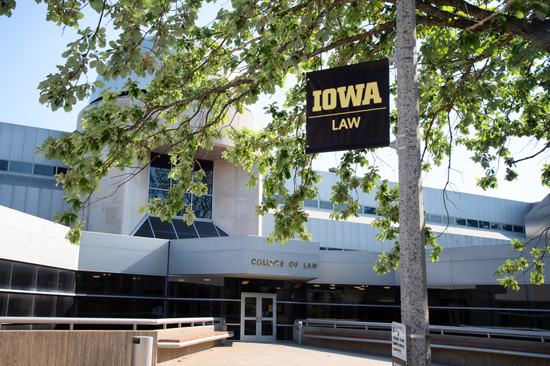About the Community Empowerment Law Project (CELP)

The Community Empowerment Law Project (CELP) undertakes representation of individuals, nonprofit organizations, and governmental entities to strengthen communities, create economic opportunity, and advance racial and justice in the State of Iowa and beyond. CELP adopts a model of representation that is collaborative and non-hierarchical and takes full account of the client and community’s strengths, needs, and aspirations.
CELP works with clients and communities to amplify their voices, increase their impact, and build strategic alliances. The clinic represents clients in non-litigation matters that emphasize capacity building, law reform, and systemic change. These matters have included: entity formation and governance; strategic planning; coalition building; legislative, regulatory, and policy advocacy; and strategic advocacy guidance.
Students work as a part of a team to support and advise a client with a complex problem. CELP is unique in that students will initiate the representation and end the representation in one semester, so that they can see the full arc of the project, not just small pieces or tasks. Students in CELP will design a project plan, conduct all legal and factual research, interview relevant stakeholders, counsel clients, make strategic choices, and design, author, and present final deliverables. CELP is not subject-matter driven. Past projects have focused on criminal legal reform, environmental protection, reproductive justice, urban agriculture, education, and labor-related issues, among others.
The Community Empowerment Law Project is directed by Professor Daria Fisher Page.
Prospective clients
Each academic semester (September–December and January–April), CELP works with two or three clients on a substantial project.
These projects are typically staffed by a team of three law students, who will each work 30–40 hours per week for the fifteen weeks of the semester. Students receive intensive supervision from an experienced faculty attorney, who reviews all drafts and communications, and moots students in preparation for meetings, interviews, and presentations.
Do clients have to assign tasks to students?
Project clients do not have to assign tasks to students; instead, they can present a problem or a goal to the clinic, and the students, with supervisor support, will design and implement a plan to reach that goal or address the problem. The most effective partnerships are those in which the client is open to trusting students to think creatively and strategically, and to represent the client’s interests with a range of stakeholders.
When does the clinic accept new clients?
The clinic typically selects clients for the fall semester in June or July and clients for the spring semester in October or November.
How do I become a CELP client?
If you are interested in being a CELP client, please send an email to law-legal-clinic@uiowa.edu with the following information:
- Individual name
- Individual contact info
- Organization (if relevant)
- Description of the project/work/problem, in only a few sentences
- Timeline (when would you want the students to work on the project and why?)
Information for students
Application and Prerequisites
CELP does not have corequisite or prerequisite courses. Students should bring curiosity, commitment, and creativity to their clinic experience.
"A rising 2L and 3L should sign up for CELP because you'll get to work on an interesting project where you can directly help people in other communities. Professor Daria Fisher Page is so knowledgeable, and I would recommend joining CELP just to work with her.”